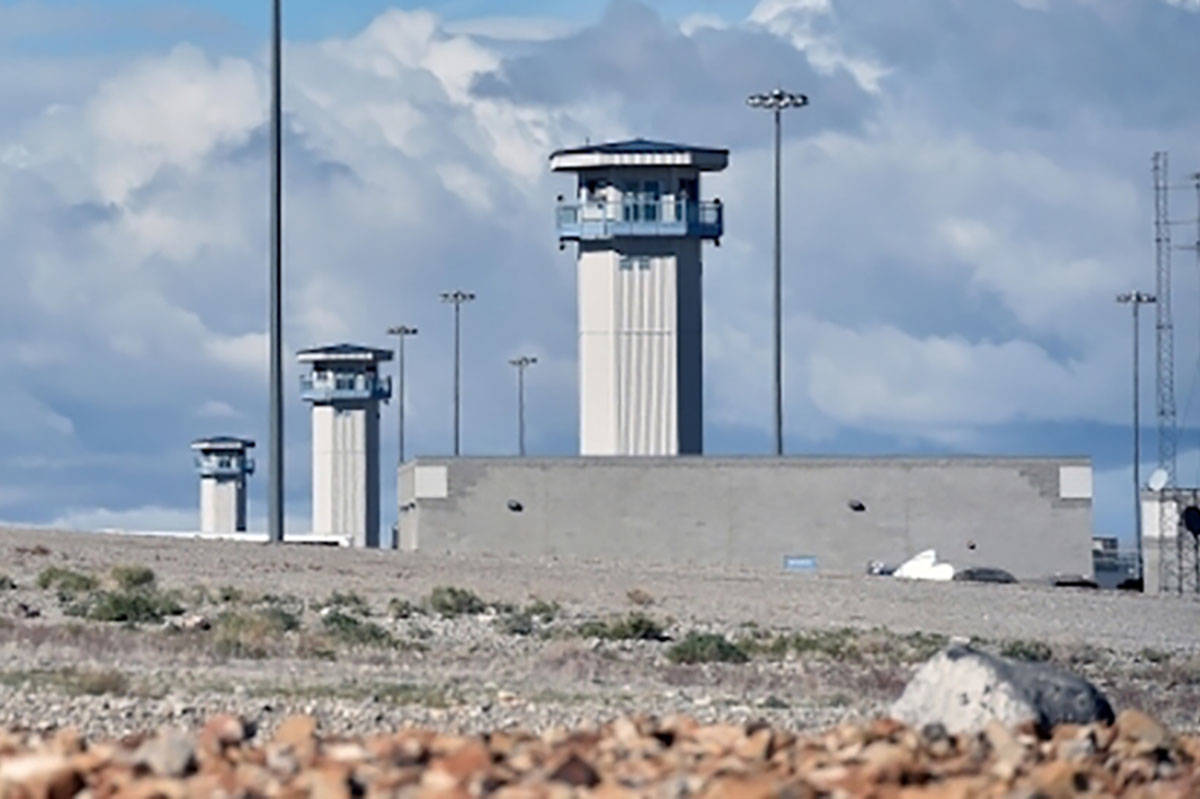Judge tosses lawsuit that called for higher Nevada prison wages
A judge has dismissed a lawsuit that called for Nevada prison workers to be paid the minimum wage.
Lawyers for one inmate had argued that paying $3 a day for work in the Nevada Forestry Division violated the state’s labor laws.
But District Judge Adriana Escobar ruled last week that prisoners should not be given the same benefits as free employees.
“There’s no direct employee relationship between the inmate and the NDF. Instead, it’s the Department of Corrections,” Escobar said in handing down her decision on Tuesday. “And in some cases, the inmates have a reduction in the time that they have to serve is my understanding. The NDOC makes the determination as to which inmates are eligible for the work to these conservation camps.”
The judge pointed out that prisoners are housed and fed and provided with medical treatment.
Appeal planned
Attorneys Travis Barrick and Nathan Lawrence, who represent David Anthony Gonzalez, an inmate at Three Lakes Valley Conservation Camp in Indian Springs nearing his release, said they plan to appeal the decision to the state’s highest court.
“We don’t agree with the judge’s decision,” Lawrence said.
Barrick added, “Not even just the outcome, but the path she took to get there.”
They also acknowledged that the “fine point of law” argued in Gonzalez’s complaint was unlikely to be resolved at the District Court level, and they said Escobar’s decision essentially expedited their push for a ruling from the Nevada Supreme Court.
Deputy Attorney General Anthony Walsh, representing the prison system, had argued that minimum wage laws were designed to prevent people from “falling into substandard living conditions” but did not apply to prisoners.
“We believe that the economic realities indicate inmates working for NDF camps are not employees specifically because the economic realities of incarceration are not the same as the economic realities faced by the general public,” Walsh said. “Additionally, if an inmate is essentially laid off from an NDF program, or the program were to end, inmates would not be covered by any statutory framework for unemployment benefits.”
Good behavior
As a prisoner who earned his job through good behavior, Gonzalez cleans up state roadsides, using heavy equipment like chainsaws to clear vegetation, and could even be called to fight a fire, his lawyers said.
Lawrence and Barrick said the pay Gonzalez and other inmates earned fell below the state’s minimum wage of $8 an hour. A raise, they argued, would not affect the state’s coffers, and would instead be transferred from the forestry division to the prison system.
According to state law, wages paid to offenders are subject to administrative supervision.
Lawrence said the direct employer-employee relationship between prison workers and the forestry division should guide the wage.
“It’s irrelevant whether that person needs a job or whether he has expenses to cover, or any of those exigencies that go along with that,” Lawrence said. “There’s no question here that the inmates depend entirely on the state for their opportunity to work.”
Grievance denied
Gonzalez filed a grievance through the prison system early last year that was denied. A later petition to the forestry division was rejected after the fire warden argued that the agency was “free to set any wage for offenders participating in conservation camp programs.”
The inmate was convicted of kidnapping in December 2014 for his role in an armed robbery, though he did not have a weapon, according to his lawyers and court records.
He could be a free man within months, and his lawyers have said that paying him a reasonable wage would help him better acclimate to freedom.
“The work being done by Mr. Gonzalez and similarly situated inmates is entirely voluntary and is distinguishable from work conducted inside a facility and is even more distinct from vocational training or other education,” Lawrence and Barrick wrote in court papers. “Mr. Gonzalez volunteers his labor in exchange for pay, and in doing so, he maintains his status as a State employee.”
Contact David Ferrara at dferrara@reviewjournal.com or 702-380-1039. Follow @randompoker on Twitter.




















